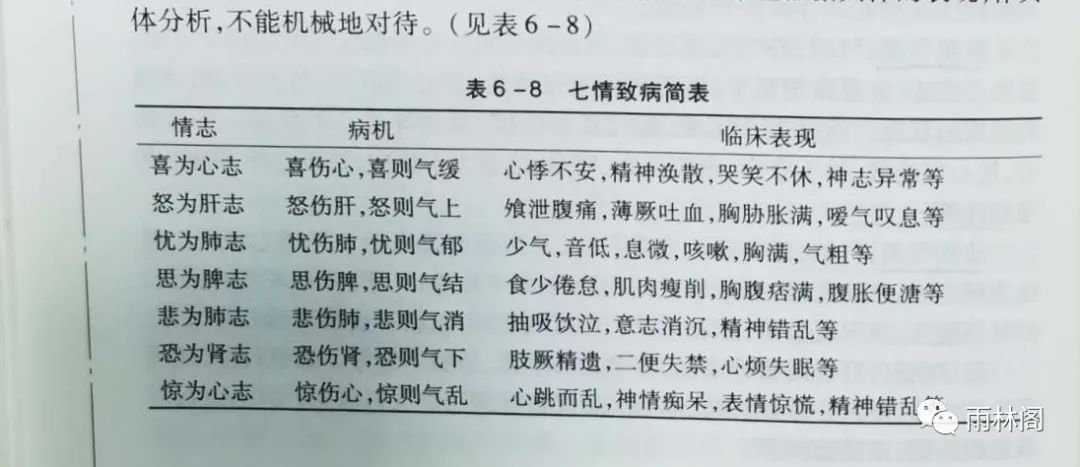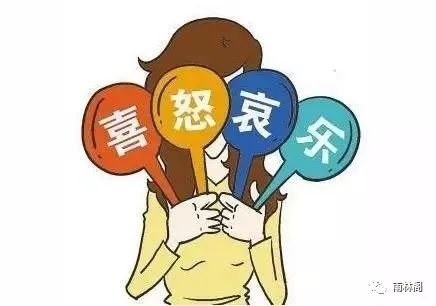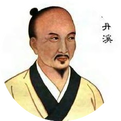
This article is summarized and organized based on the “Lectures on Basic Theories of Traditional Chinese Medicine” by Li Dexin, published by Renwei Press.The causes of internal injury are symmetrical to those of external pathogens, referring to pathogenic factors that directly harm the organs due to emotional or behavioral irregularities, including excessive emotions, overwork, indulgence, and inappropriate diet.In pathophysiology, internal injury refers to the ways and means by which internal pathogenic factors such as emotions, fatigue, and diet directly damage the organs, leading to diseases known as internal injury diseases. Internal injury diseases are characterized by their relation to the organs, complex etiology, pathology, and syndromes, with the fundamental pathogenesis being the imbalance of yin, yang, qi, and blood in the organs. During the evolution of the disease, there often appear mixed patterns of cold and heat, deficiency and excess, and overlapping of various diseases.1. Seven Emotions (Internal) Injury1. Emotions and desires are a pair of categories in Chinese psychology, also known as emotional and desire psychology, aimed at discussing the essence of emotions and desires and their relationship, which is also an important research topic in modern psychology.Emotion: Refers to feelings, which in psychology is a general term for emotions and feelings.Emotions and feelings are subjective experiences that arise when a person perceives whether objective things meet their needs.Emotions are common to both humans and animals, while feelings are related to human social needs, representing a unique, advanced, and complex experience with significant stability and depth.For example, moral feelings arising from moral needs; a sense of achievement or honor arising from career needs; and aesthetic feelings arising from aesthetic needs.Desire: Refers to human desires, wants, and needs, such as appetite and sexual desire. “Eating and sexual relations are the greatest desires of humans.” (from “Supplementary Records: The Rites”)2. Emotion and WillWill refers to aspirations and intentions. Will and intention are also a pair of categories in Chinese psychology, known as will and intention psychology, aimed at exploring the nature and relationship of will and intention, related to the will in modern psychology. The relationship between emotion and will in the history of Chinese psychology is referred to as emotions and desires.3. Seven EmotionsThe term Seven Emotions has different meanings in TCM physiology and pharmacology.(1) In TCM physiology (or psychology): TCM has inherited and developed the theories of emotions and desires, will and intention from Chinese psychology, forming the theory of the five wills (anger, joy, thought, worry, fear) and the theory of the seven emotions (joy, anger, worry, thought, sadness, fear, shock), collectively referred to as the theory of emotions.As stated in the “Su Wen: On the Correspondence of Yin and Yang”: “The heart corresponds to joy, the liver to anger, the spleen to thought, the lungs to worry, and the kidneys to fear. This is the division of the five organs and five wills.”We can define the Seven Emotions in TCM as follows: the Seven Emotions are the collective term for the seven types of emotional responses: joy, anger, worry, thought, sadness, fear, and shock, which are the body’s seven different emotional reactions to objective things and phenomena.(2) In TCM pharmacology: The Seven Emotions refer to the seven different actions of herbal combinations, namely, single action, mutual killing, mutual restraint, mutual assistance, mutual necessity, mutual opposition, and mutual aversion.(B) The Meaning of Seven Emotions (Internal) InjuryThe Seven Emotions (Internal) Injury refers to the excessive, prolonged, or sudden changes in the seven emotions (joy, anger, worry, thought, sadness, fear, shock) that directly harm the corresponding organs and cause disease. The connotation of this definition is:First, excessive, prolonged, or sudden changes in the seven emotions become factors leading to disease.Second, excessive emotions directly damage the corresponding organs.The Seven Emotions are different reflections of humans to objective things, and within a normal range of activity, they generally do not cause disease. Only sudden, intense, or prolonged emotional stimuli that exceed the body’s normal physiological activity range can disrupt the qi mechanism, leading to imbalances in the organs’ yin, yang, qi, and blood, resulting in disease.Therefore, as a pathogenic factor, the Seven Emotions (Internal) Injury refers to excessively intense, prolonged, or sudden emotional changes that lead to imbalances in the organs’ qi, blood, yin, and yang, causing disease.Diseases caused by internal injury from the Seven Emotions are referred to as diseases caused by stagnation, while certain chronic diseases can lead to abnormal emotional states due to long-term dysfunction of the organs, referred to as diseases causing stagnation.The Seven Emotions are also related to the body’s own tolerance and regulatory capacity.Internal injury from the Seven Emotions differs from the six excesses, as the six excesses primarily invade the body through the mouth, nose, or skin, while the Seven Emotions directly affect the relevant organs and cause disease.The internal injury from the Seven Emotions can not only lead to the occurrence of various diseases but also significantly influence the progression of diseases, promoting both improvement and deterioration of the condition.Since the internal injury from the Seven Emotions is one of the main pathogenic factors causing internal injury diseases, it is also referred to as “internal injury from the Seven Emotions.”(C) The Relationship Between Seven Emotions and Organs’ Qi and Blood1. The Relationship Between Seven Emotions and OrgansThe emotional activities of the human body are closely related to the organs.The basic rule is:The heart governs joy; excessive joy harms the heart;The liver governs anger; excessive anger harms the liver;The spleen governs thought; excessive thought harms the spleen;The lungs govern sadness and worry; excessive sadness or worry harms the lungs;The kidneys govern shock and fear; excessive shock or fear harms the kidneys.This indicates that organ changes can lead to corresponding emotional responses, and excessive emotional responses can damage the related organs. The theory that the Seven Emotions arise from and harm the five organs has significant guiding implications in diagnosis and treatment.2. The Relationship Between Seven Emotions and Qi and BloodQi and blood are the two fundamental substances that constitute the body and maintain life activities. Qi has a warming and promoting effect on the organs, while blood nourishes the organs.Qi and blood are the material basis for the body’s emotional activities, and changes in emotions are closely related to changes in qi and blood. Therefore, it is said: “When blood is abundant, there is anger; when it is insufficient, there is fear.”The physiological activities of the organs must be based on qi and blood, while emotional activities are manifestations of the physiological functions of the organs, so the emotional activities of the human body are closely related to the qi and blood of the organs.(D) The Pathological Characteristics of the Seven Emotions1. Related to Mental StimuliThe Seven Emotions are considered mental pathogenic factors, and their onset is always related to significant mental stimuli. Throughout the course of the disease, changes in emotions can lead to significant changes in the condition. For example, epilepsy is often caused by emotional injury; depression harms the liver, leading to liver qi stagnation, which damages the spleen, resulting in phlegm accumulation, which can disturb the mind and lead to loss of control.Mania is often caused by anger and grief, which harm the liver and gallbladder, leading to improper release, stagnation, and transformation into fire, which can disturb the mind and lead to confusion.Thus, mental factors play a crucial role in the onset and progression of diseases.2. Directly Harm the OrgansExcessive emotions can affect the functional activities of the organs and produce pathological changes. Different emotional stimuli can harm different organs, resulting in various pathological changes. For instance, excessive joy harms the heart, leading to palpitations, scattered thoughts, and even mental disorders.Although excessive emotions can harm the five organs, the relationship with the heart and liver is particularly close. The heart is the master of the five organs, and all life activities are manifestations of the functions of the five organs, which must be governed by the heart. Damage to the heart spirit inevitably involves other organs. Liver qi stagnation and disordered qi mechanism are key mechanisms in emotional diseases.The heart governs blood and houses the spirit; the liver stores blood and governs the smooth flow; the spleen governs transformation and transportation, serving as the pivot for the rise and fall of qi and the source of qi and blood generation.Thus, emotional injuries primarily affect the heart, liver, and spleen, leading to qi and blood imbalances. For example, excessive joy can damage the heart, causing anxiety, palpitations, insomnia, restlessness, and even mental disorders, manifesting as uncontrollable laughter or crying, excessive talking, and manic behavior.Unresolved anger can harm the liver, affecting its smooth flow, leading to rib pain, irritability, sighing, or a sensation of obstruction in the throat, or due to qi stagnation and blood stasis, causing menstrual irregularities, dysmenorrhea, amenorrhea, and masses in women. Sudden anger can cause liver qi to rise, damaging the blood vessels, leading to massive vomiting of blood or fainting.Excessive worry can harm the spleen, leading to poor appetite and abdominal distension.Emotional injuries affecting the heart, liver, and spleen can occur independently or often interact and compound harm, such as excessive worry damaging the heart and spleen, unresolved anger leading to liver-spleen disharmony, etc. Additionally, imbalances in emotional activities such as joy, anger, worry, thought, and fear can lead to disordered qi mechanisms, stagnation, and transformation into fire, resulting in irritability, easy anger, insomnia, flushed face, bitter mouth, and symptoms such as vomiting blood and nosebleeds, which are manifestations of fire, referred to as “Five Emotions Transforming into Fire.”Emotional imbalances can also lead to “Six Stagnations” as a disease, namely, qi stagnation leading to dampness, dampness leading to heat, heat leading to phlegm, phlegm leading to blood stasis, and blood stasis leading to food stagnation. In other words, qi stagnation can lead to blood stagnation, phlegm stagnation, dampness stagnation, and food stagnation as diseases. For example, Zhu Danxi’s Yao Ju Wan can treat diseases caused by “Six Stagnations.”3. Impact on the Qi Mechanism of the Organs“All diseases arise from qi.” The Seven Emotions, namely joy, anger, worry, thought, sadness, fear, and shock, are also referred to as the Seven Qis.In addition to the Seven Emotions, when combined with cold and heat, they are referred to as the Nine Qis. Qi is precious for its smooth flow, continuous movement, and regular rise and fall. Qi enters and exits in an orderly manner, rises and falls regularly, circulating throughout the body without causing disease.If the Seven Emotions change excessively, the Five Will can become pathological, leading to qi mechanism disorders, either qi not circulating smoothly and becoming stagnant, or rise and fall becoming irregular and chaotic. When the Seven Emotions are not expressed, qi becomes stagnant, leading to qi stagnation and blood stasis, qi stagnation leading to dampness and phlegm, and transformation into fire harming yin. This can manifest in the body or in the organs, leading to various diseases.Emotional injuries disrupt the qi mechanism of the organs, leading to abnormal blood flow and imbalances in yin and yang. Different emotional changes manifest differently in terms of qi mechanism disorders.Anger causes qi to rise; joy causes qi to relax; sadness causes qi to dissipate; thought causes qi to stagnate; fear causes qi to descend; shock causes qi to become chaotic.Anger causes qi to rise: Qi rising means qi mechanism is reversing upwards. Anger is the will of the liver; encountering frustration or dissatisfaction can lead to temporary anger, which generally does not cause disease. However, excessive anger can harm the liver, causing liver qi to excessively rise and lead to disease.Liver qi rising can lead to blood rising, resulting in dizziness, headache, flushed face, and in severe cases, vomiting blood or fainting.Liver qi can also affect the spleen, leading to abdominal distension and diarrhea. Diarrhea, also known as water and grain benefit, presents as undigested stools.If it affects the stomach, it can lead to belching and vomiting. Since the liver and kidneys share a source, anger can not only harm the liver but also the kidneys. Kidney damage can lead to symptoms of fear, forgetfulness, and weakness in the lower back.The liver is the thief of the five organs; thus, abnormal liver qi can affect the physiological functions of various organs, leading to multiple pathological changes.Joy causes qi to relax: Qi relaxation refers to the relaxation of heart qi, including both the calming of tense emotions and the scattering of heart qi.Joy is the will of the heart; under normal circumstances, joy can ease tense emotions, making the mood pleasant, and harmonizing qi and blood, reflecting a healthy state. However, excessive joy can lead to heart disease. Excessive joy can harm the heart, causing heart qi to scatter, leading to fatigue, lethargy, lack of concentration, and even palpitations, confusion, or mania.Sadness causes qi to dissipate: Qi dissipation refers to the consumption of lung qi. Sadness is an emotional expression of sorrow and grief. Sadness and worry are the will of the lungs; excessive sadness often consumes lung qi, affecting the heart, liver, spleen, and other organs.For example, excessive sadness can weaken lung qi, leading to diminished energy, lethargy, and weakness. Sadness can also harm the liver, leading to mental confusion, and even muscle spasms and rib discomfort. Excessive sadness can also injure the heart qi, leading to palpitations and confusion. Sadness can harm the spleen, leading to stagnation in the three burners, resulting in abdominal distension and weakness in the limbs.Thought causes qi to stagnate: Qi stagnation refers to the stagnation of spleen qi. Thought is the will of the spleen; while thinking is a normal physiological activity, excessive thinking can lead to stagnation of qi in the middle, causing spleen qi stagnation, leading to poor digestion and absorption, presenting as poor appetite, abdominal distension, and even muscle wasting.Excessive thinking can harm both the spleen and the heart, leading to heart blood deficiency, causing palpitations, anxiety, insomnia, forgetfulness, and vivid dreams.Fear causes qi to descend: Qi descent refers to the sinking of vital energy. Fear is a psychological response of timidity and dread. Fear is the will of the kidneys; prolonged fear or sudden fright can damage kidney qi, leading to what is known as fear harming the kidneys.Excessive fear can lead to kidney qi instability, resulting in symptoms such as incontinence, seminal emission, and weakness in the bones. Fear harms the kidneys, and when vital energy cannot nourish the heart and lungs, it can lead to symptoms such as chest fullness, abdominal distension, anxiety, and insomnia.Shock causes qi to become chaotic: Qi chaos refers to the disorder of heart qi. The heart governs blood and houses the spirit; excessive shock can disrupt heart qi, leading to qi and blood imbalances, resulting in symptoms such as palpitations, insomnia, anxiety, and even mental confusion.Shock differs from fear; fear is self-aware, while shock is not. Shock can affect the heart and gallbladder, leading to confusion of the spirit, or affect the fetus, causing congenital epilepsy.4. Emotional FluctuationsAbnormal emotional fluctuations can worsen or rapidly deteriorate the condition. For example, in patients with dizziness due to yin deficiency and yang excess, encountering anger can cause liver yang to surge, leading to dizziness and even sudden fainting, paralysis, or facial drooping, resulting in a stroke. Maintaining a cheerful and calm demeanor is beneficial for recovery.The seven emotions of joy, anger, worry, thought, sadness, fear, and shock are closely related to the internal organs. Emotional activities must be based on the essence and qi of the five organs, and various mental stimuli can only reflect emotional changes through the functions of the relevant organs. Thus, it is said: “Humans have five organs that transform into five qigong, giving rise to joy, anger, sadness, worry, and fear.”Emotional injuries primarily affect the five organs, mainly causing dysfunction of the five organs’ qi mechanisms, leading to disharmony of qi and blood, and imbalances of yin and yang. As for which organ is affected, there are both constants and variations. The Seven Emotions arise from the five organs and can harm the corresponding organs, such as joy harming the heart, anger harming the liver, and fear harming the kidneys. However, sometimes a single emotional change can also harm multiple organs, such as sadness affecting the lungs and liver. Multiple emotions can also simultaneously harm a single organ, such as joy and shock both harming the heart. Therefore, clinical analysis should be based on specific manifestations and not treated mechanically.

 This public account regularly shares knowledge about Traditional Chinese Medicine. Please scan the code to follow!
This public account regularly shares knowledge about Traditional Chinese Medicine. Please scan the code to follow!


